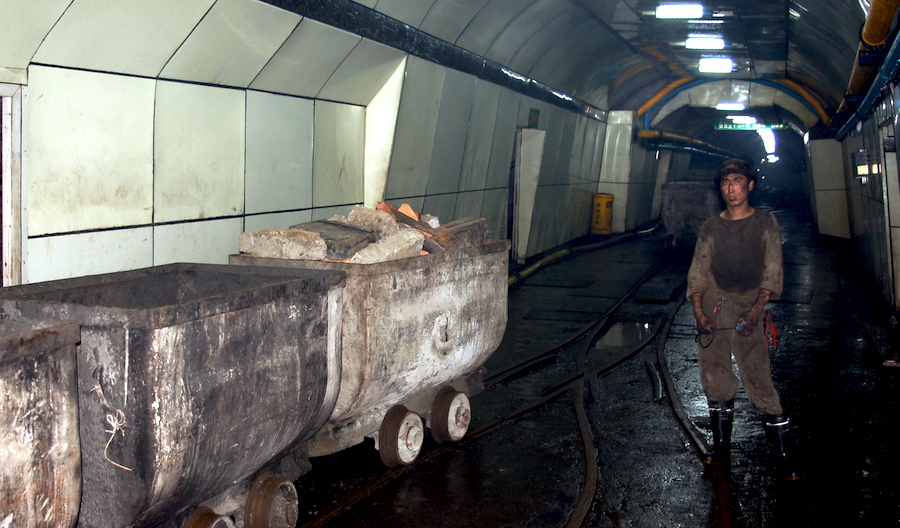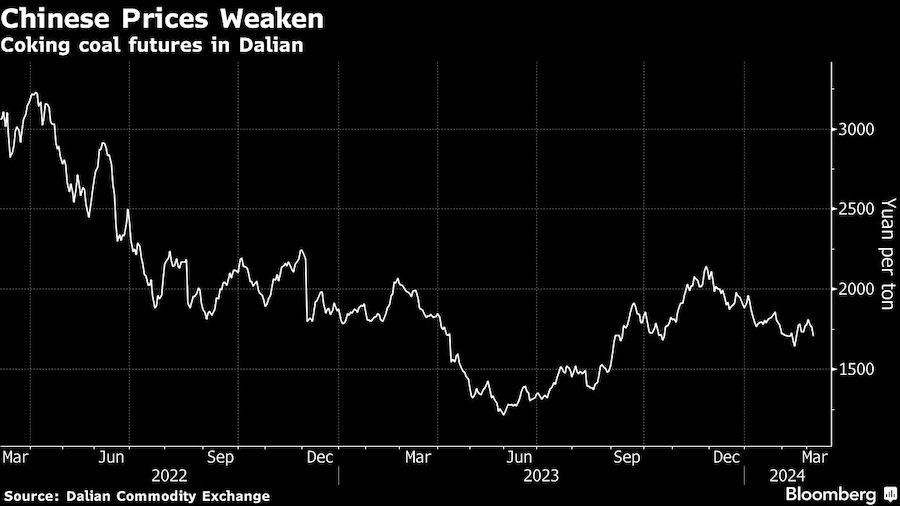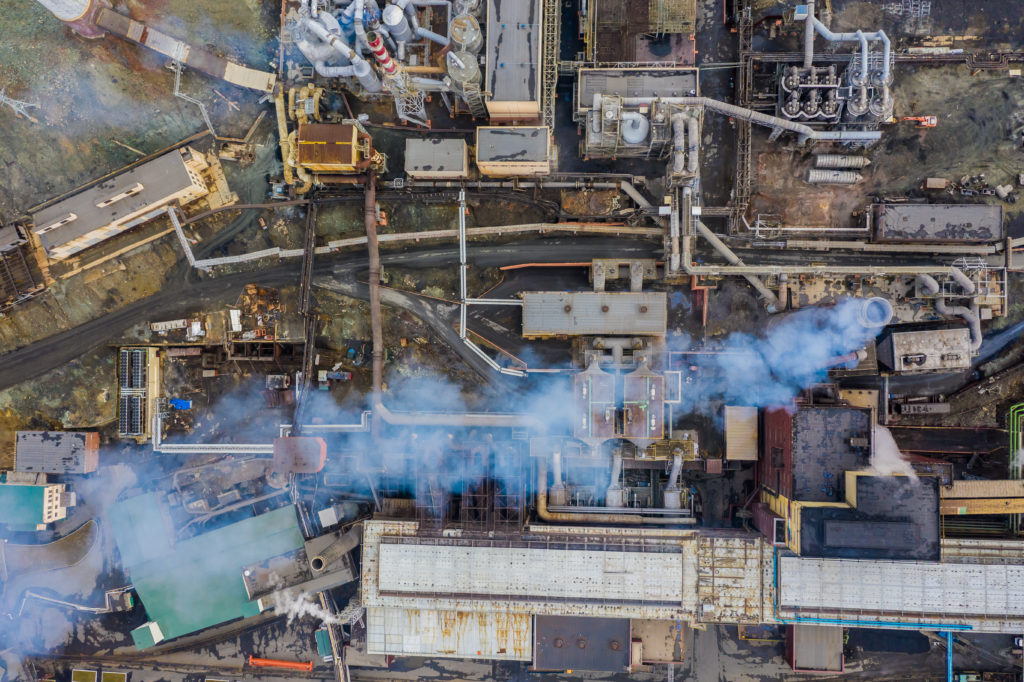Bloomberg News | March 6, 2024 |

Coal miner in Xingtai, China. (Image courtesy of Wikimedia Commons.)
China’s coking coal industry needs more state protection, including restrictions on supply, according to the chairman of the biggest miner.

Beijing should control mining activity, limit output and consolidate smaller producers into state-owned firms to “reduce disorderly competition,” Shanxi Coking Coal Energy Group chairman Zhao Jianze told local media. China should also build strategic reserves of the steelmaking fuel, which he called “a ballast stone in China’s industrial economic system.”


While blessed with an abundance of thermal coal for power generation, China’s reserves of the steelmaking variety are far more scarce. That’s led to an over-reliance on imports, which has created vulnerabilities. A ban on Australian supplies — the only effective substitute for Chinese coking coal, according to Zhao — drastically curtailed shipments for more than two years before it was lifted in early 2023.
Zhao is a national committee member of the Chinese People’s Political Consultative Conference, one of two legislative sessions being held in the capital this week. Officials typically use the meetings to catch the attention of policymakers as they draw up the government’s agenda for the year ahead.
Coking coal producers have suffered an outsized impact in recent months from a spate of fatal mining disasters in China, which has disrupted operations and curbed supply. The protracted slump in China’s property market is also sapping demand from their customers at steel mills.
China’s copper smelters to discuss production cut as fees slump
Bloomberg News | March 6, 2024 |

Chimneys of copper smelting plant. Stock image.
China’s biggest copper smelters are set to meet in Beijing next week to discuss measures to counter a plunge in ore processing fees to the lowest level in years, including potential production cuts.

At least 15 smelters were invited to the meeting hosted by the China Nonferrous Metals Industry Association, said people familiar with the matter, who asked not to be identified as they aren’t authorized to speak publicly.
The fees that companies receive to turn concentrate into refined metal, so-called treatment charges, have slumped to a record low in data going back to 2013. They dropped to single digits in 2010 after the global financial crisis forced miners to curtail operations, according to Wood Mackenzie Ltd.
Smelters compete to treat concentrate but overseas mine disruptions are curbing supply, forcing them to drop their fees. The situation is made worse by overcapacity in China, home to the world’s largest processing industry, where smelters have expanded relentlessly to meet demand from economic growth and the energy transition.
Senior executives from the smelters are set to discuss a joint production cut, but it may be difficult for all the plants to agree on such a plan, the people said. The industry association declined to comment. Shanghai Metals Market reported the meeting earlier.
The president of Tongling Nonferrous Metals Group Holdings Co., one of the top producers, said this week that his company is not planning output cuts or changes in maintenance schedules. The company expects copper demand to grow from emerging industries such as electric vehicles and other new-energy sectors.
(By Alfred Cang)
Bloomberg News | March 6, 2024 |

Chimneys of copper smelting plant. Stock image.
China’s biggest copper smelters are set to meet in Beijing next week to discuss measures to counter a plunge in ore processing fees to the lowest level in years, including potential production cuts.

At least 15 smelters were invited to the meeting hosted by the China Nonferrous Metals Industry Association, said people familiar with the matter, who asked not to be identified as they aren’t authorized to speak publicly.
The fees that companies receive to turn concentrate into refined metal, so-called treatment charges, have slumped to a record low in data going back to 2013. They dropped to single digits in 2010 after the global financial crisis forced miners to curtail operations, according to Wood Mackenzie Ltd.
Smelters compete to treat concentrate but overseas mine disruptions are curbing supply, forcing them to drop their fees. The situation is made worse by overcapacity in China, home to the world’s largest processing industry, where smelters have expanded relentlessly to meet demand from economic growth and the energy transition.
Senior executives from the smelters are set to discuss a joint production cut, but it may be difficult for all the plants to agree on such a plan, the people said. The industry association declined to comment. Shanghai Metals Market reported the meeting earlier.
The president of Tongling Nonferrous Metals Group Holdings Co., one of the top producers, said this week that his company is not planning output cuts or changes in maintenance schedules. The company expects copper demand to grow from emerging industries such as electric vehicles and other new-energy sectors.
(By Alfred Cang)
No comments:
Post a Comment